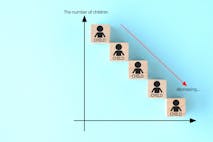
New analysis confirms American women do not need Planned Parenthood for health care
Cassy Cooke
·
REPORT: 'Assisted dying' in Canada poses higher risks for vulnerable people
A newly released Cardus Health report reveals that Canada’s legalization of assisted suicide, euphemistically known as 'medical assistance in dying' (MAiD), has given rise to high rates of death among vulnerable people despite alleged safeguards.
An analysis of multiple data sources revealed that those with disabilities, those with mental illnesses, and those with "social vulnerability" were disproportionately killed by Canada's 'medical assistance in dying' program from 2019 to 2023.
The 2012 court case that allowed the legalization of assisted suicide claimed that it would primarily be for the "terminally ill" and that safeguards would be in place to prevent what is now proven to be occurring.
Next year, with MAiD opened up to those with mental illnesses, these safeguards are meaningless, and more people without terminal illnesses will be killed.
According to its website, Cardus Health is a group that hopes to foster a “social system that supports the desire for a natural death, equips social institutions to support patients and caregivers, and develops a continuum of care for those approaching the end of life.”
The Cardus Health report, titled "In Contrast to Carter: Assisted Dying’s Impact on Canadians with Disabilities," drew on data from the Office of the Chief Coroner of Ontario; peer-reviewed medical studies and public reports, as well as Health Canada. It evaluated whether euthanasia and assisted suicide (MAiD) could be legalized without placing vulnerable Canadians at disproportionate risk.
The results were stark.
Excerpts of the report revealed (emphases added):
“Those who died from MAiD were more likely to have been living with a disability than those who did not die from MAiD, even though both groups had similar medical conditions and experienced diminished capability."
"... MAiD is increasingly driven by disability status, rather than by underlying illness.”
“From 2019 to 2023, 42 percent of all MAiD deaths involved people who required disability services, including over 1,017 people who required but did not receive these services." Those most likely to die were those who "required disability supports" or "had an unknown disability status."
"Nationwide in some years, and in Ontario in 2023 (the only data point in Ontario), people with disabilities were the most likely type of person to die from MAiD.”
MAiD practitioners have definitively “euthanized disabled patients who needed disability support and were unable to access them."
"A large number of MAiD deaths occurred even when the provider did not know if disability supports were available, despite the legal requirement to inform MAiD applicants of available disability support services."
The report also noted that people experiencing mental illness were perishing by assisted suicide at excessive rates.
Research done on assisted suicide deaths between 2016 and 2019 at a care center in Toronto found individuals requesting MAiD had high rates of “psychiatric comorbidity,” indicating they had been diagnosed with two or more mental health disorders. Of 155 patients that requested MAiD, 60 (39%) had a documented psychiatric comorbidity, with depression being the most common.
Furthermore, the report elaborated that in 2023, MAiD practitioners noted that "the suffering of almost half their MAiD recipients included the perception of being a burden on others, 10 percent more than the previous year."
Researchers couldn't pinpoint "whether this suffering primarily drove the request or was but one contributing factor;" however, "federal data reveal that... more than 38 percent of their patients who received MAiD from 2019 to 2023 voiced concerns that they felt like a burden."
This implies that "Canadian physicians are not reluctant to provide MAiD for suffering that includes social vulnerability.”
The British Columbia Supreme Court ruled in 2012 in the Carter v. Canada case that a suitably safeguarded physician-assisted dying program could be enacted in Canada that would not create a “heightened risk” or an “inordinate” impact on vulnerable groups, and there would be no undue consequences on their ability to continue living.
The safeguards stipulated that physician-assisted suicide would mainly be for those terminally ill, while physicians would closely investigate MAiD requests for people with disabilities or depression, and those socially alienated or who had neurological illnesses would be safeguarded through a painstaking review process, the report stated.
In response, Alexander Raikin, the author of the Cardus Health report and a visiting fellow in bioethics at the Ethics and Public Policy Center, penned:
This report’s findings are contrary to the assumptions by Canadian courts and the claims frequently made by cabinet ministers and Parliament. It corroborates, instead, concerns shared previously and repeatedly by disability activists and groups, including testimony ultimately rejected by the Supreme Court in Carter.
The report notes that there is an “intensified risk of premature death for vulnerable groups, and that the expected safeguards have failed to materialize.”
The report also warned about Canada’s decision to broaden MAiD for people with mental illness alone beginning in 2027, which will likely further boost the numbers of non-terminally-ill people opting for assisted dying.
Live Action News is pro-life news and commentary from a pro-life perspective.
Contact editor@liveaction.org for questions, corrections, or if you are seeking permission to reprint any Live Action News content.
Guest Articles: To submit a guest article to Live Action News, email editor@liveaction.org with an attached Word document of 800-1000 words. Please also attach any photos relevant to your submission if applicable. If your submission is accepted for publication, you will be notified within three weeks. Guest articles are not compensated (see our Open License Agreement). Thank you for your interest in Live Action News!

Cassy Cooke
·
Pop Culture
Nancy Flanders
·
Issues
Bridget Sielicki
·
Guest Column
Rai Rojas
·
Issues
Cassy Cooke
·
Issues
Bridget Sielicki
·
International
Angeline Tan
·
International
Angeline Tan
·
Opinion
Angeline Tan
·
International
Angeline Tan
·
International
Angeline Tan
·